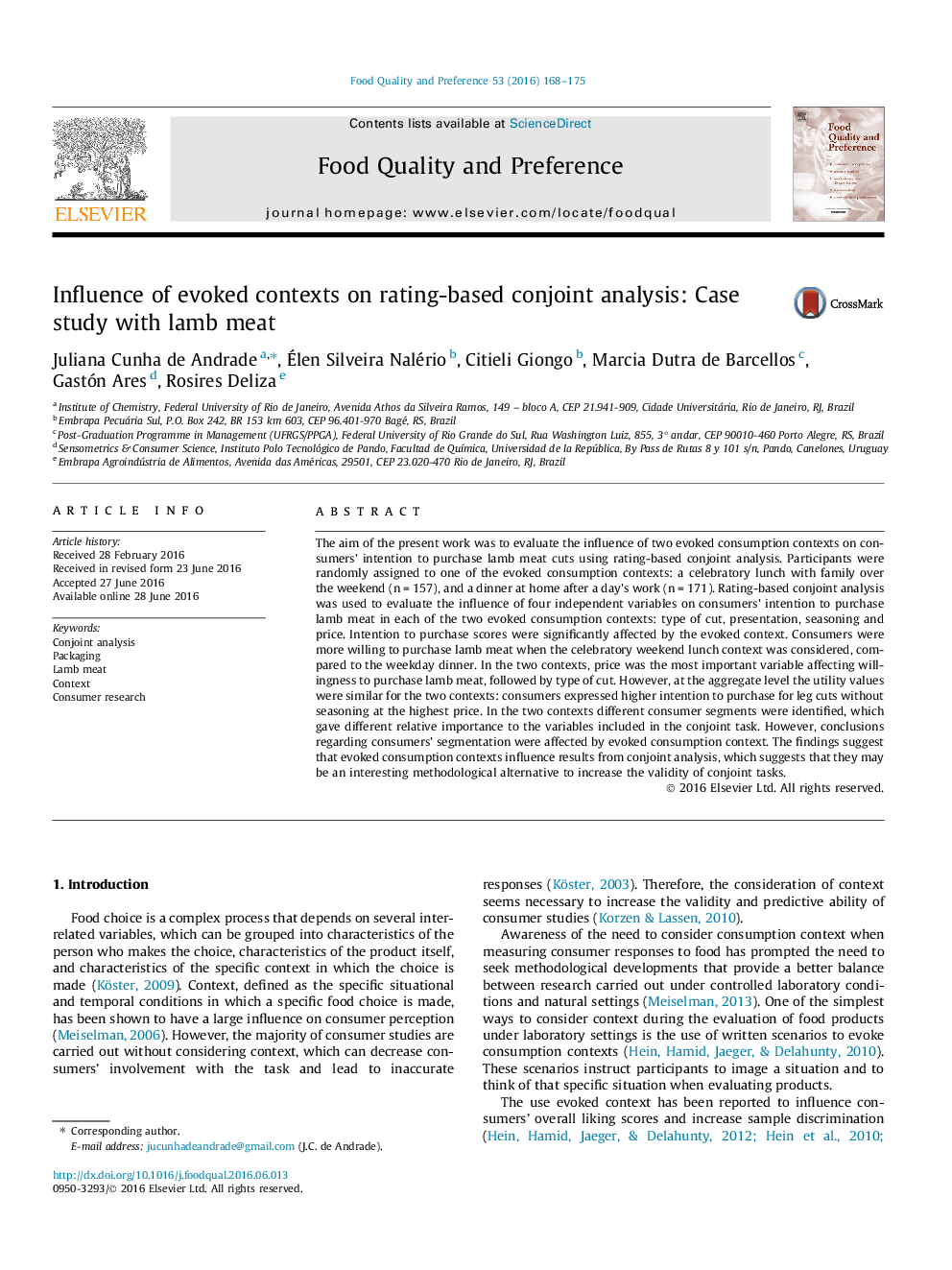| کد مقاله | کد نشریه | سال انتشار | مقاله انگلیسی | نسخه تمام متن |
|---|---|---|---|---|
| 4316896 | 1613146 | 2016 | 8 صفحه PDF | دانلود رایگان |
• The influence of evoked contexts on consumers’ perception of lamb meat was evaluated using rating-based conjoint.
• Evoked context affected consumers’ intention to purchase.
• The discrimination of the conjoint variables varied with evoked context.
• The number of clusters and their preferences were also affected by evoked context.
The aim of the present work was to evaluate the influence of two evoked consumption contexts on consumers’ intention to purchase lamb meat cuts using rating-based conjoint analysis. Participants were randomly assigned to one of the evoked consumption contexts: a celebratory lunch with family over the weekend (n = 157), and a dinner at home after a day’s work (n = 171). Rating-based conjoint analysis was used to evaluate the influence of four independent variables on consumers’ intention to purchase lamb meat in each of the two evoked consumption contexts: type of cut, presentation, seasoning and price. Intention to purchase scores were significantly affected by the evoked context. Consumers were more willing to purchase lamb meat when the celebratory weekend lunch context was considered, compared to the weekday dinner. In the two contexts, price was the most important variable affecting willingness to purchase lamb meat, followed by type of cut. However, at the aggregate level the utility values were similar for the two contexts: consumers expressed higher intention to purchase for leg cuts without seasoning at the highest price. In the two contexts different consumer segments were identified, which gave different relative importance to the variables included in the conjoint task. However, conclusions regarding consumers’ segmentation were affected by evoked consumption context. The findings suggest that evoked consumption contexts influence results from conjoint analysis, which suggests that they may be an interesting methodological alternative to increase the validity of conjoint tasks.
Journal: Food Quality and Preference - Volume 53, October 2016, Pages 168–175
